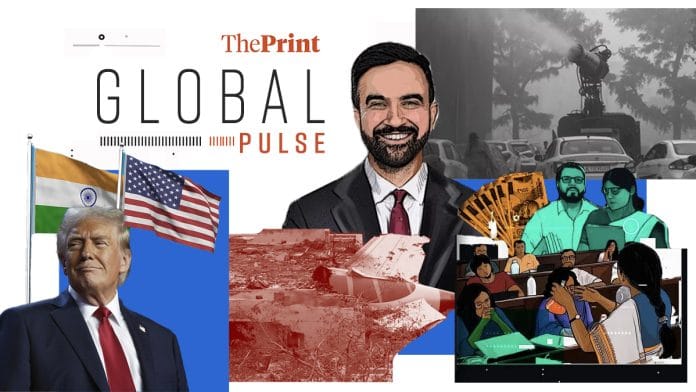New Delhi: Despite India being one of the first countries to confirm news of a trade deal with the US under Donald Trump, “early optimism” has dwindled, and positions on both sides have “hardened”, according to The Economist’s Essential India newsletter.
“One big question for India is whether Mr Trump can be trusted to stick to any deal that gets signed. It is reportedly seeking assurances that the Trump administration is not going to introduce more tariffs down the line; it wants to ensure that any deal that is agreed now can be immediately renegotiated if that happens. Some think India should wait and see if Mr Trump will actually raise tariffs on July 9th. American courts may eventually rule that the president does not have the right to do so in the way he has threatened,” it reads.
In the Financial Times’s India Business Briefing, Veena Venugopal also writes that India-US negotiations “appear to have hit tough ground”.
“The key question for me is whether a July agreement will make any mention of agriculture—specifically, if American wheat, corn, rice, soya, sugar and dairy might enter the Indian market. For the US, of course, this would mean hundreds of millions of new consumers. But India has ringfenced its agriculture from external competition for decades now,” she notes.
An analysis by the New York Times shows that the deadly Air India crash could have been due to a “catastrophic loss of hydraulic, electrical or engine power while airborne”.
“Possible explanations of a simultaneous dual engine failure could include contamination of the fuel source into both engines, or an issue stemming from an incorrect input of flight parameters before take-off,” says the report.
New York mayoral candidate Zohran Mamdani referred to Indian Prime Minister Narendra Modi as a “war criminal”, a statement for which he has drawn widespread flak in India, reports Joshua Yang in The Washington Post.
“Social media posts accused Mamdani—born to a Muslim father and a Hindu mother—of Hinduphobia, a common charge leveled at politicians who speak out against Modi’s far-right Hindu nationalist rhetoric. “Mamdani is a terror sympathiser. A Hindu-hating bigot,” Sreemoy Talukdar, an editor at Firstpost, an Indian media outlet with ties to the Hindu right, wrote on Wednesday on X,” according to the report.
The Guardian’s Gary Fuller reports on an investigation by scientists attempting to figure out the causes behind Delhi’s yearly bout of debilitating pollution.
“During the worst smog, the researchers found that particle pollution from agricultural fires accounted for 32% of the daily deaths from air pollution in Delhi and 53% in Kanpur. This amounted to 1,072 attributable deaths in Delhi in November and December, and 259 in Kanpur. Women and older people were the most likely to be affected,” the report also says.
Meanwhile, the BBC’s Nikita Yadav reports on Indian parents protesting astronomical private school fees.
“In Delhi, which has emerged as the epicentre of the protests, the issue recently made headlines after DPS Dwarka allegedly confined students in the library, hired security guards to stop them from entering classes and expelled them over unpaid dues. Parents have accused the school of punishing children for financial decisions made by their families,” says the report.
(Edited by Zinnia Ray Chaudhuri)
Also read: India’s lofty aviation ambitions interrupted & the 1975 Emergency, when a ‘young democracy froze’






